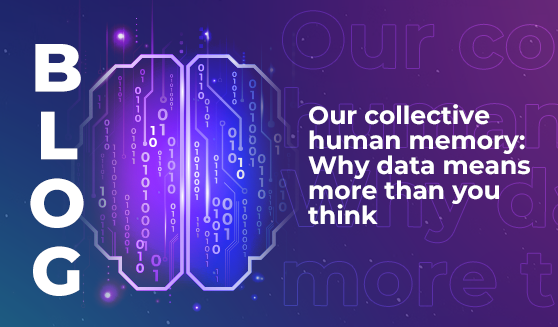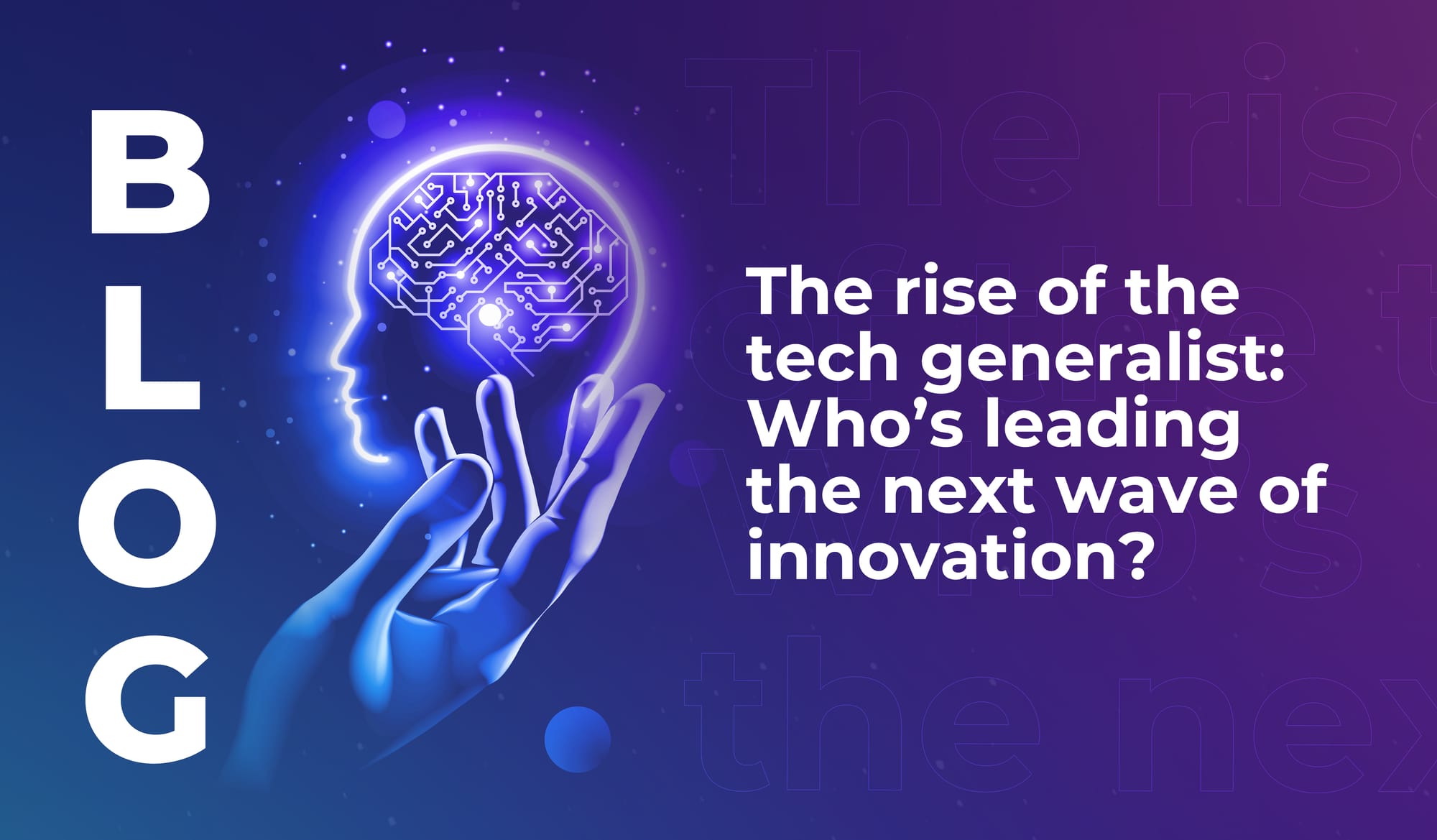
Tech careers with impact: The power of investing
If you’ve ever thought about becoming a tech investor, read this – learn why investors are the quiet force shaping the future of the industry.


Data isn’t static; not fixed in place. It’s information – and we like to think of it as a living thing; shifting and changing as our world shifts and changes, too.
When we asked Dr. Kathrin Kind-Trueller (Chief Data Scientist / AI A. Director Nordics) if there’s one thing she wishes everyone knew about data, she said:
“Ah, data! The DNA of our digital universe, intricate and omnipresent, yet so often misunderstood. If I could impart one nugget of wisdom about data to every curious mind out there, it would be this: Data, in its essence, is not just numbers and codes; it's a storytelling medium, a narrative waiting to be woven into insights and actions.”
The more we talk to leaders in the tech industry, the more we understand these two things:
And actually, even people who don’t work directly with data are living in relationship with it; because it’s a part of daily life for pretty much everyone on earth.
For e-commerce leader Rajesh Kumar (CEO at Ferns N Petals, GCC & SEA), “Data is the king.”
“One can't really survive without being on top of data in such a competitive market,” he added. “We have a dedicated team to track multiple sets of data to keep analysing the consumer and market behaviour – and on the basis of those analyses we make the majority of the business decisions on quarterly and on annual basis.”
The essential nature of data analysis for business is underpinned by the essential nature of data for…everything. “You see, data is much like the ancient runes,” said Kind-Trueller. “Each symbol, each figure holds a story, a lesson from the past, a prediction for the future, or a reflection of the present. But without the right interpretation, without the keen eye of a sage (or in modern terms, a data scientist), these stories remain untold, their lessons unlearned.”
When we interviewed Edosa Odaro (Chief Data Analytics Officer at Tawuniya), we asked him what’s missing in the way we currently collect and analyse data.
“I think there are some fundamental misconceptions about how data works,” he said.
“We often hear that data is an asset and it seems to be a most common catchphrase these days. But the BIG question is 'what kind of asset is data?'”
“To simplify this answer, we can consider two key types of assets. On the one extreme is 'exclusive' assets – which gain most of their value by being scarce and by being hoarded (such as luxury watches and lots of everyday assets). On the other extreme are 'network' assets – which gain their value in the opposite way: by being shared (such as big events and social media).”
“Data as an asset is more aligned to 'network' since its value significantly amplifies the more it is shared, connected, and utilised. It is utility that ultimately powers the wonders of Data Science, AI, and Advanced Analytics.”
We asked Odaro what data diversity means to him. He said, “There are far too many viewpoints about diversity – with a lot of these causing either offence or unhelpful polarisation. Yet, I believe that something most of us can all agree on is that, regardless of where we stand on the problems of diversity (or the broader areas included within ESG) there is far more we can do to focus on techniques for achieving tangible solutions.
“Fundamental to these solutions is data. Why? At least 3 key reasons:
“The caveat is that there really cannot be a single silver bullet solution, but it is absolutely essential to start with data and utilise data to enable tangible outcomes.”
Kind-Trueller asked us to step outside a purely functional view of data, and see the threads that connect it to the deeper fabric of human life.
“Imagine, if you will, walking through a library where every book is written in a language you don't understand,” she said. “That's the world without data literacy. Now, imagine having the key to decipher those texts, unlocking the wisdom of ages past and the potential of the future. That's the power of understanding data.”
“The stories data tells us are potent, capable of guiding decisions that shape our world, from the mundane to the monumental. Yet, like any powerful tool, the ethics of how we use it, interpret it, and share its tales cannot be overlooked.”
The effective and efficient collection, analysis, and interpretation of high quality data is critical across all industries. But it’s also critical for enabling a positive future for humanity, outside of industry and economics alone.
“So, in a world flooded with data,” Kind-Trueller added, “my wish is for everyone to recognise not just its value but its vulnerability. To see data not as a mere commodity but as the collective memory of humanity, a resource to be used wisely, ethically, and, dare I say, with a touch of reverence. For in the right hands, data can indeed change the world, but only if we respect the stories it's trying to tell.”

If you’ve ever thought about becoming a tech investor, read this – learn why investors are the quiet force shaping the future of the industry.

Tech generalists will enable emerging technologies to integrate across industries and societies in meaningful ways. We still need specialists – but we also need big-picture people.

Discover three tech sectors facing a talent shortage this year. Could you find your ideal role in a high-demand sector like cybersecurity, cloud computing, or artificial intelligence?

If you’ve ever thought about becoming a tech investor, read this – learn why investors are the quiet force shaping the future of the industry.

Tech generalists will enable emerging technologies to integrate across industries and societies in meaningful ways. We still need specialists – but we also need big-picture people.

Discover three tech sectors facing a talent shortage this year. Could you find your ideal role in a high-demand sector like cybersecurity, cloud computing, or artificial intelligence?